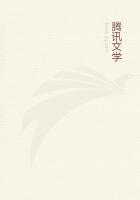Harvey himself was but the posthumous child of the great Elizabethan period. Bacon was at once his teacher and his patient. The founder of the new inductive philosophy had only been dead two years when the treatise on the Circulation, the first-fruit of the Restoration of Science, was given to the world.
And is it to be looked at as a mere accidental coincidence, that while Napoleon was modernizing the political world, Bichat was revolutionizing the science of life and the art that is based upon it; that while the young general was scaling the Alps, the young surgeon was climbing the steeper summits of unexplored nature; that the same year read the announcement of those admirable "Researches on Life and Death," and the bulletins of the battle of Marengo?
If we come to our own country, who can fail to recognize that Benjamin Rush, the most conspicuous of American physicians, was the intellectual offspring of the movement which produced the Revolution?
"The same hand," says one of his biographers," which subscribed the declaration of the political independence of these States, accomplished their emancipation from medical systems formed in foreign countries, and wholly unsuitable to the state of diseases in America."
Following this general course of remark, I propose to indicate in a few words the direction of the main intellectual current of the time, and to point out more particularly some of the eddies which tend to keep the science and art of medicine from moving with it, or even to carry them backwards.
The two dominant words of our time are law and average, both pointing to the uniformity of the order of being in which we live. Statistics have tabulated everything,--population, growth, wealth, crime, disease. We have shaded maps showing the geographical distribution of larceny and suicide. Analysis and classification have been at work upon all tangible and visible objects. The Positive Philosophy of Comte has only given expression to the observing and computing mind of the nineteenth century.
In the mean time, the great stronghold of intellectual conservatism, traditional belief, has been assailed by facts which would have been indicted as blasphemy but a few generations ago. Those new tables of the law, placed in the hands of the geologist by the same living God who spoke from Sinai to the Israelites of old, have remodelled the beliefs of half the civilized world. The solemn scepticism of science has replaced the sneering doubts of witty philosophers. The more positive knowledge we gain, the more we incline to question all that has been received without absolute proof.
As a matter of course, this movement has its partial reactions. The province of faith is claimed as a port free of entry to unsupported individual convictions. The tendency to question is met by the unanalyzing instinct of reverence. The old church calls back its frightened truants. Some who have lost their hereditary religious belief find a resource in the revelations of Spiritualism. By a parallel movement, some of those who have become medical infidels pass over to the mystic band of believers in the fancied miracles of Homoeopathy.
Under these influences transmitted to, or at least shared by, the medical profession, the old question between "Nature," so called, and "Art," or professional tradition, has reappeared with new interest.
I say the old question, for Hippocrates stated the case on the side of "Nature" more than two thousand years ago. Miss Florence Nightingale,--and if I name her next to the august Father of the Healing Art, its noblest daughter well deserves that place of honor, --Miss Florence Nightingale begins her late volume with a paraphrase of his statement. But from a very early time to this there has always been a strong party against "Nature." Themison called the practice of Hippocrates "a meditation upon death." Dr. Rush says:
"It is impossible to calculate the mischief which Hippocrates, has done, by first marking Nature with his name and afterwards letting her loose upon sick people. Millions have perished by her hands in all ages and countries." Sir John Forbes, whose defence of "Nature" in disease you all know, and to the testimonial in whose honor four of your Presidents have contributed, has been recently greeted, on retiring from the profession, with a wish that his retirement had been twenty years sooner, and the opinion that no man had done so much to destroy the confidence of the public in the medical profession.
In this Society we have had the Hippocratic and the Themisonic side fairly represented. The treatise of one of your early Presidents on the Mercurial Treatment is familiar to my older listeners. Others who have held the same office have been noted for the boldness of their practice, and even for partiality to the use of complex medication.
On the side of "Nature" we have had, first of all, that remarkable discourse on Self-Limited Diseases, [On Self-Limited Diseases. A Discourse delivered before the Massachusetts Medical Society, at their Annual Meeting, May 27, 1835. By Jacob Bigelow, M. D.] which has given the key-note to the prevailing medical tendency of this neighborhood, at least, for the quarter of a century since it was delivered. Nor have we forgotten the address delivered at Springfield twenty years later, [Search out the Secrets, of Nature.
By Augustus A. Gould, M. D. Read at the Annual Meeting, June 27, 1855.] full of good sense and useful suggestions, to one of which suggestions we owe the learned, impartial, judicious, well-written Prize Essay of Dr. Worthington Hooker. [Rational Therapeutics. A Prize Essay. By Worthington Hooker, M. D., of New Haven. Boston.














